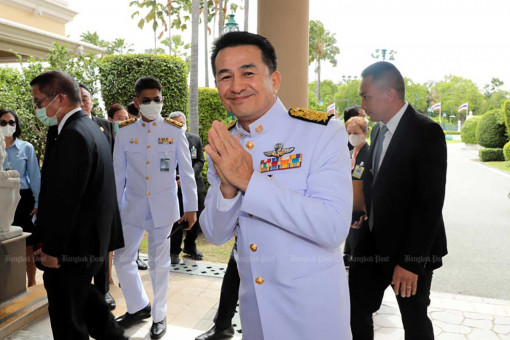Thailand braces for week of heavy rain, rising waterways
PUBLISHED : 1 Oct 2023 at 16:42

Heavy rains will be expanding nationwide and the levels of waterways will be rising throughout the first week of this month, government agencies warned on Sunday.
The Meteorological Department said that heavy rains would cover parts of the North, the Northeast and the South on Sunday and Monday.
From Tuesday to Saturday heavy downpours would be in the lower Northeast, the lower Central Plain, the East and the South.
The Department of Disaster Prevention and Mitigation warned people living near waterways in 11 provinces in the Chao Phraya river basin that the levels of those waterways could rise from Monday onwards.
The warning was issued for residents of Ang Thong, Ayutthaya, Bangkok, Chai Nat, Lop Buri, Nonthaburi, Pathum Thani, Samut Prakan, Sing Buri, Suphan Buri and Uthai Thani.
Water levels might go up by 1.00-1.50 metres in low-lying parts of Ang Thong and Ayutthaya.
The department said that deluges of water were flowing from the North and it would rain heavily in the Northeast, the Central Plain and the South this week.
On Sunday the Yom River overflowed through ruptured embankments into Muang district of the northern province of Sukhothai, affecting about 1,300 households and 2,400 rai of farmland.
Deputy Prime Minister Somsak Thepsutin said in Sukhothai that the province would receive torrents from Phrae province and flooded areas in Sukhothai might expand.
Meanwhile, flood levels in Lom Sak district of Phetchabun province, also in the North, were subsiding on Sunday. Phetchabun governor Krit Kongmuang said local reservoirs were 80-90% full.
The Highways Department reported that four highways were impassable in the northern provinces of Lampang, Lamphun and Sukhothai due to floods and mudslides on Sunday.
They were Highway 1102 in Mae Phrik district of Lampang; Highway 1010 in Ban Hong district and Highway 1184 in Thung Hua Chang district of Lamphun; and Highway 1056 in Sri Samrong district of Sukhothai.
















